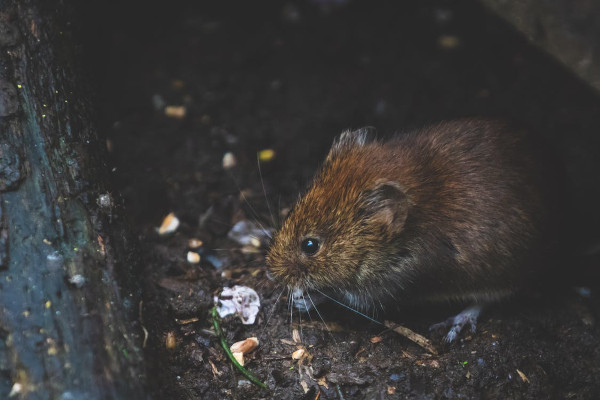Buying or Selling a Home with Pest Issues
No one is looking to buy a home with pests. If you're selling your home, you certainly shouldn't be trying to sell if you have pests. It's as simple as that.
No one wants uninvited house guests!
Let's start by looking at what a pest problem is. From there, we'll take a look at the buyer's perspective and the seller's perspective - what should both parties do to make sure there are no pests in a home?
Without further ado, let's get started.

What is a pest problem?
Many homes have pest problems at one point or another. These can be rather benign, like rabbits near the garden or squirrels with an affinity for bird seed.
They can also be rather scary - mice, bedbugs, cockroaches, and termites can all cause serious headaches, and in the case of termites, even structural damage.
Now, if a homeowner had a cockroach infestation 15 years ago, that hardly constitutes a pest problem. But if they've got a cockroach infestation while they're trying to sell their home, that's obviously a pest problem.
Not sure whether or not a home has a pest problem? Your best bet is to hire a third-party - like an exterminator - to evaluate whether or not you have an infestation. In the next two sections, we'll evaluate how the buyer and the seller can go about this.
The buyer's side
Be on the lookout for signs of pests. Droppings, holes in the walls, pest traps, or actual live or dead pests are all signs that the current homeowner is dealing with an infestation. There are also a number of factors that can attract pests. If, for example, there's a lot of stagnant water, you can expect more pests. The same goes for homes that are at the bottom of a slope - water will trickle down the slope and can stagnate.
If you're worried about pests, you can ask the homeowner for a report from their last pest inspection. If they don't have one, you can ask them to conduct a pest inspection. If they're unwilling to, you can get a pest inspection done on your own dime, as long as the homeowner is willing to cooperate. If they're not willing to take your offer to do a pest inspection for them - well, they may just have something to hide.
Yes, the pest inspection will cost you some cash, but it won't cost nearly as much as buying a home, only to learn that it's constantly plagued by pests. An inspection can be well worth it.
The seller's side
When you're trying to sell your home, it's a good idea to get a pest inspection. There are some telltale signs you might have pests. Let's say there's a musty smell in your vents. You'll certainly want to get that checked out before you sell - prospective buyers aren't going to be too keen on an odd-smelling home.
Where is that musty smell coming from? It could be a lot of things. Can animals get into air ducts? They can. Is the musty smell coming from animal activity?
Not fun to think about, but it's a possibility.
That's why it's a good idea to get a pest inspection done as a part of your full home inspection before selling. The more information you have, the easier it's going to be to put a prospective buyer at ease.

Let's say you have a buyer who is worried about pests. What will reassure them more than a homeowner who can say "We haven't had any problems with pests, but before putting our home on the market, we had an inspection done - just in case. They found nothing. You can read it!". That shows a homeowner who is going above and beyond to ensure that the buyer is feeling comfortable with the home.
Now, if you do an inspection and you find pests, you must disclose the results of the inspection to prospective buyers. The best solution? Exterminate those pests, and get another pest inspection once they're exterminated. You can feel free to tell the buyers about your home's history with pests, and show them the report that says you now have a clean slate.
It's worth mentioning that if you're renting an apartment, or you're a landlord looking for renters, all of these suggestions still apply. No one wants to live in a pest-infested home - do your research, and get those inspections done!